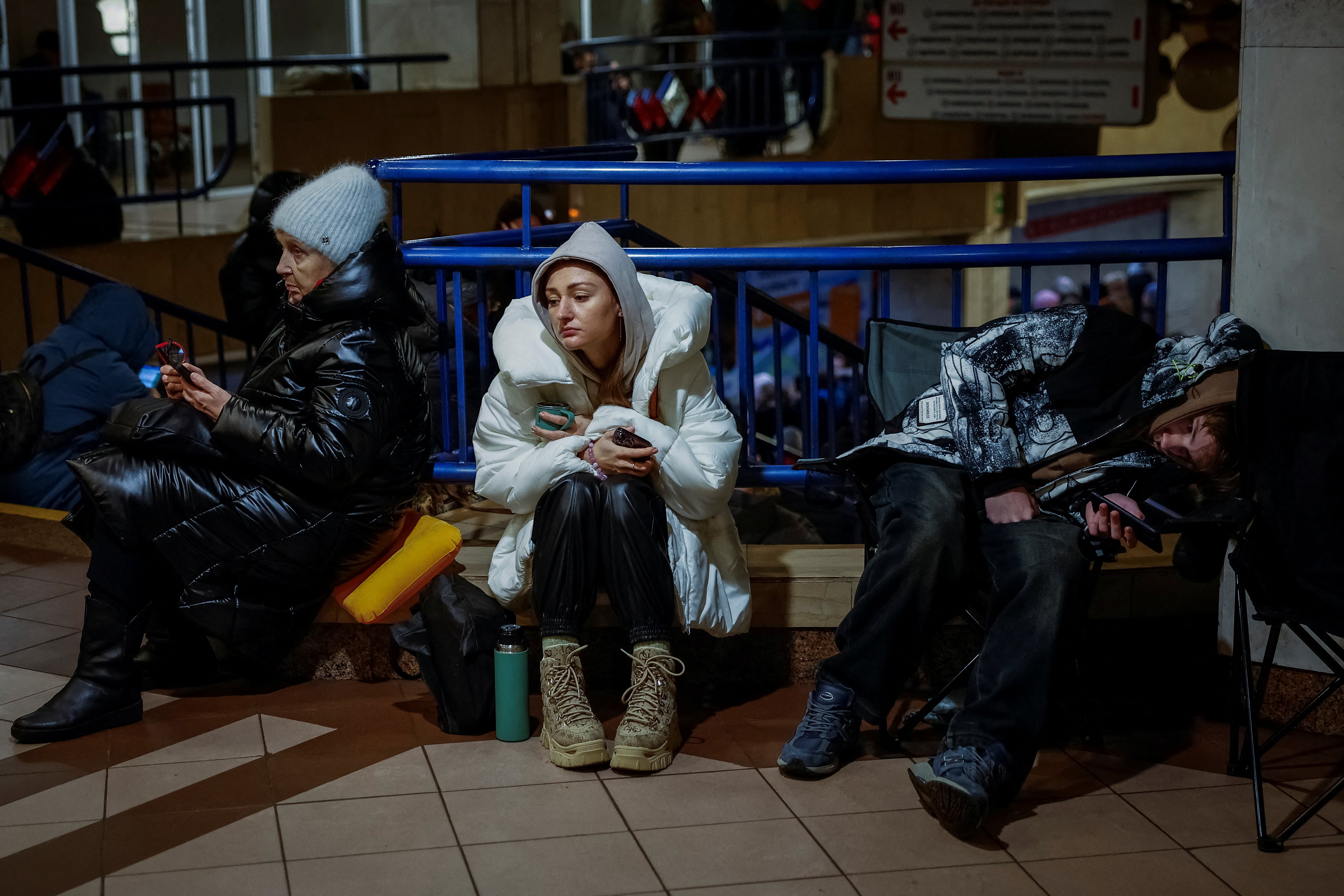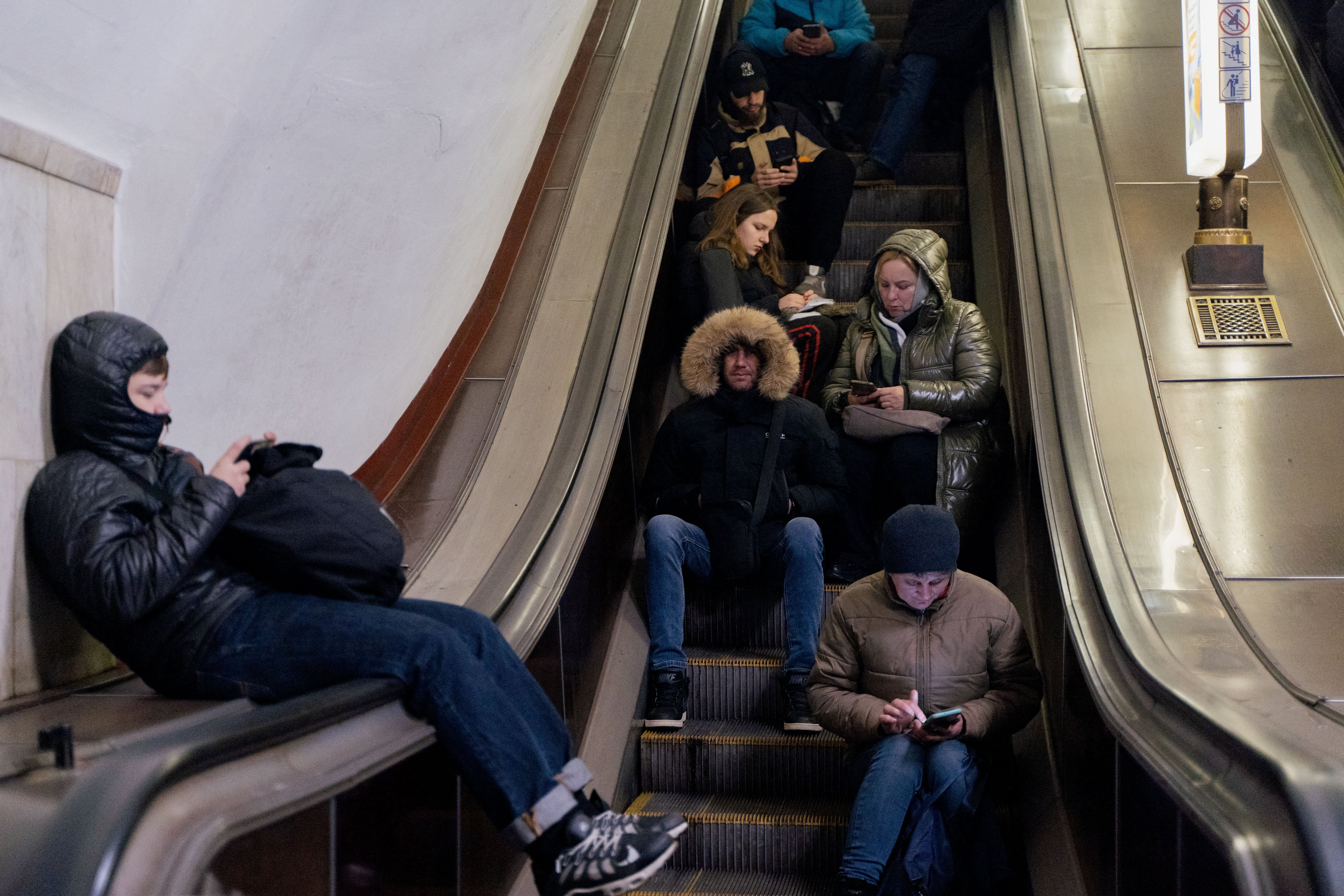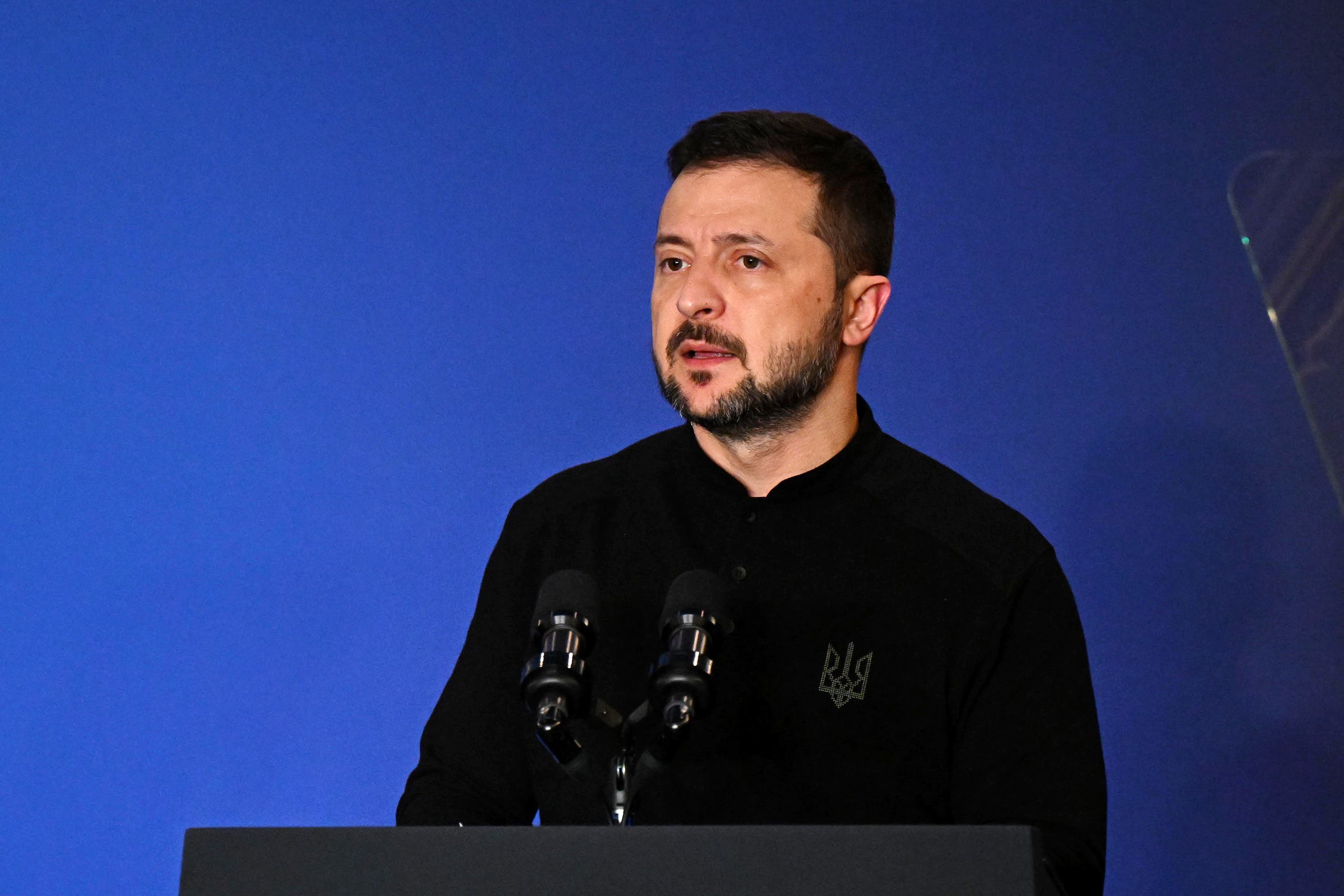Russia has unleashed another “massive” attack against Ukraine's energy infrastructure, firing nearly 200 missiles and drones and leaving more than a million households without power, Ukrainian officials said.
Explosions were heard across the country as damage to the energy and other critical infrastructure was reported by officials in cities in the west, south and centre of the country.
Ukrainian President Volodymyr Zelensky said Russia used cruise missiles with cluster munitions in Thursday's attack, calling it a “vile escalation”.
“Energy infrastructure is once again targeted by the enemy’s massive strike,” Ukrainian energy minister Herman Halushchenko said on Facebook.
Follow live updates on Russia’s war in Ukraine here
Russia had knocked out about half of Ukraine’s available generating capacity, damaged the distribution system and forced long blackouts.
It is Russia's second major aerial attack on Ukraine's power grid in less than two weeks as well as the 11th major strike on the Ukrainian energy system since March.
Below, The Independent takes a look at why Russia is launching so many strikes and the likely impact of them on Ukraine.
Why is Russia launching the attacks?
To hit Ukraine’s energy system ahead of winter with view to cripple morale
As has been the case every year since it invaded Ukraine in 2022, Russia has started hitting power stations and other sites with force before winter sets in, bringing with it plunging temperatures.
The latest attack on Ukraine’s energy infrastructure on Thursday – the second big one this month – has further amplified fears that the Kremlin again aims to cripple the country’s power generation capacity, bringing long power cuts during the winter months as temperatures across Ukraine hover around zero and below.
Professor Mark Galeotti, academic and author of more than 20 books on Russia, suggested the strikes are all part of the same pattern – intended to impact Ukrainians’ morale to the extent that they submit to Moscow.
“Putin’s strategy is to make the Ukrainians miserable enough to give up. The Russians are trying to systematically break apart Ukraine’s power grid because it could face a rough winter,” he told The Independent.
“Once we get into October, temperatures tend to plummet. That’s when you suddenly get a lot more load on the grid and the problems will become clear. Ukrainians will at best have rationed power.”

Quest for revenge and winning information war after ‘Kyiv struck Russian territory with advanced Western weapons’
The latest strike comes just days after Kyiv struck Russian territory with long-range US and UK-supplied missiles.
Moscow says Ukraine fired US ATACMS ballistic missiles into western Russia for the first time on 19 November and UK Storm Shadow missiles later that week, prompting the Kremlin to respond firing the Oreshnik, a new experimental intermediate-range missile, at the Ukrainian city of Dnipro.
Since then, Russia says Ukraine fired more ATACMS at its Kursk region on 23 and 25 November.
Vladimir Putin said on Thursday that Russia’s overnight barrage of 90 missiles and 100 drones on Ukraine was launched in response to the ATACMS strikes,
Marcel Plichta, former analyst at the US Department of Defense, told The Independent: “These strikes usually come after some kind of Ukrainian success story.
“They are part of an information war. It is an attempt by the Kremlin to get back a narrative that shows Russia as the big strong actor in this war and Ukraine as weak and vulnerable.
“They are petty strikes and are about retribution. The targets have not had military value. They have hit apartment buildings or grain silos. It is an attack on the Ukrainian people, not Kyiv’s ability to wage war.”

What likely impact will the strikes have on Ukraine?
At least one million people in the west, south, and centre of Ukraine were left without power in Russia’s latest strike on the country, Ukrainian officials have said.
Damage to the energy and other critical infrastructure was reported by officials in Lviv, Volyn, Rivne and Khmelnytskyi regions in the west, the Mykolayiv and Kherson regions in the south, and Zhytomyr region in the centre.
A source in the energy sector source said Ukraine disconnected several nuclear power units from the network amid the Russian attack. Ukraine relies on nuclear generation for more than 50 per cent of its electricity supplies.
Lviv governor Maksym Kozytskyi said Thursday's strikes cut off electricity to about 523,000 people in the western region on Ukraine's border with Poland.
Power supplies were also cut to nearly 500,000 people in the Volyn and Rivne regions, the governors said. Electricity supplies were also disrupted in Khmelnytskyi and Zhytomyr regions, officials said.

Regional officials across the country said they were turning on generators to ensure emergency heat and water supplies to hospitals, schools and other critical facilities during bitter winter weather.
The loud hum of generators was also heard in Kyiv city as many Ukrainian small and medium businesses rely on generators for their electricity supplies during the blackouts.
However, Ukrainian air defence managed to shoot down 79 out of 91 Russian missiles and downed 35 drones, the air force said.
And the capital Kyiv was targeted but all missiles or drones were downed, officials said.
But Mr Plichta said: “The biggest worry is the affect on the energy grid. If it is damaged enough, it might not be viable for Ukrainians to stay in big cities.”







